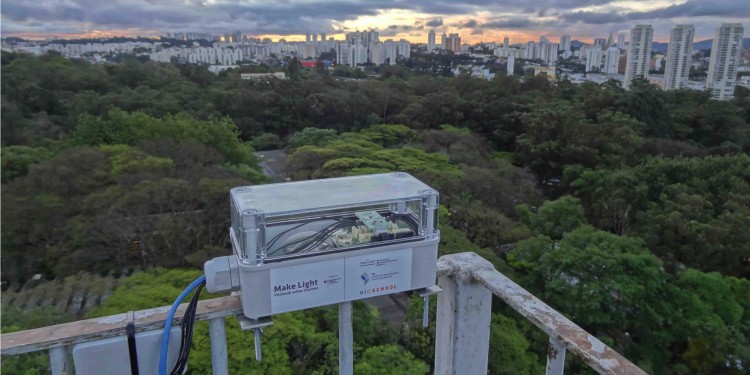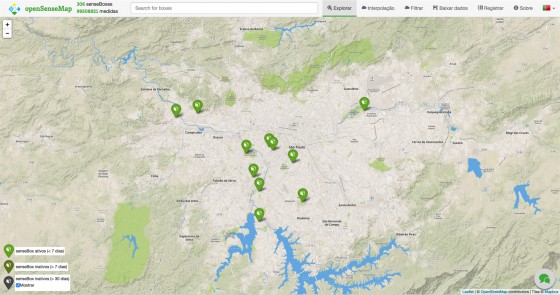
Geoinformatics specialists put measuring network in São Paulo into operation
The Münster "senseBoxes" have made it to Brazil. Geoinformatics specialists at Münster University have installed a network of ten environmental measuring stations in São Paulo. The stations are based on the "SenseBoxes" and are toolkits for stationary and mobile sensors, developed by the experts at the Institute of Geoinformatics at Münster University. The network was now officially put into operation during the fifth "German-Brazilian Dialogue on Science, Research and Innovation" in São Paulo. It is being operated by partner institutions of the German House of Science and Innovation in São Paulo (DWIH-SP), including the University of São Paulo and three schools, as well as by ordinary citizens. The stations record data continuously. The focus is on photonic phenomena such as ultraviolet rays and illumination levels. The data are available to everyone at www.opensensemap.org.

The "SenseBox" project is aimed at the general public. The project has already received several awards, including one in the "Citizens Create the City of the Future" competition. The German Federal Ministry of Education and Science is funding the project.
Münster University is being represented at the fifth German-Brazilian Dialogue, supported by the São Paulo office of its Brazil Centre. The conference is being organized by the DWIH-SP and will be taking place in São Paulo on November 29 and 30 under the title "The City of Tomorrow – Urban Challenges and Chances". One of the speakers will be Prof. Gerald Wood, Director of the Institute of Geography at Münster University.
